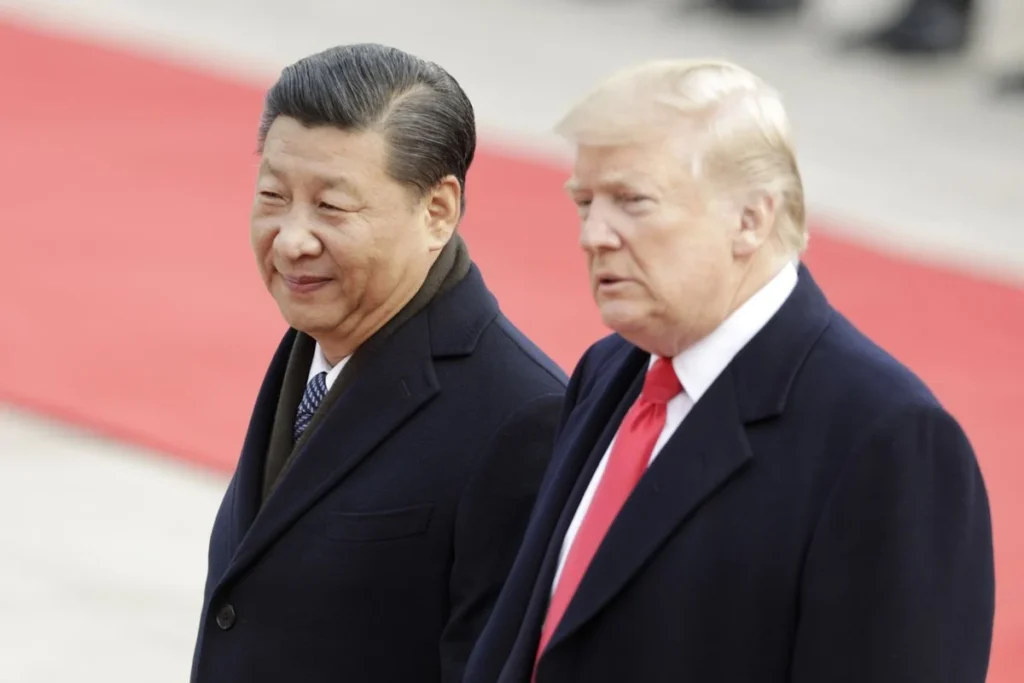
U.S. vs. China: The Spatial Struggle for Empire
The Requirements of Empire: The Importance of Spatial Expansion
Geographical Conditions of the U.S. and China
The Geographical Advantages of the U.S.
The U.S. enjoys a prime geographical position, located at the heart of the North American continent and bordered by both the Atlantic and Pacific Oceans. This provides easy access to global maritime trade and secures its naval dominance. Additionally, natural barriers make foreign invasions difficult, granting the U.S. a strong defensive advantage.
Another key factor is the Mississippi River-based logistics system, which allows for efficient trade and economic development across the country. The ability to transport goods through inland waterways has historically contributed to the U.S.’s economic growth.
China’s Geographical Constraints
In contrast, China faces several geographical limitations:
• The Himalayas block western expansion, making land-based territorial growth difficult.
• The eastern coast is surrounded by islands (Japan, Taiwan, the Philippines, etc.), restricting direct access to the open ocean.
• Naval expansion in the South China Sea is hindered by territorial disputes with neighboring countries.
As a result, China is caught between being a land-based power and an aspiring maritime power, facing strategic difficulties in both areas.
The Importance of Logistics and Transportation Networks
In the formation of an empire, logistical networks play a critical role in efficiently utilizing space.
The U.S.’s Efficient Logistics Network
The U.S. benefits from a north-south transportation system centered on the Mississippi River, which allows for cheap and efficient movement of goods. Water transport is significantly more cost-effective than land transport, making trade more accessible and profitable.
Additionally, American ports remain ice-free year-round, unlike Russia’s major ports, which freeze during the winter and limit access to the sea.
China’s Logistical Challenges
While China has major rivers like the Yangtze and Yellow Rivers, these flow east-west, meaning there is no strong north-south logistical system. This lack of an integrated transport network presents an economic challenge, particularly for inland regions.
The Modern Importance of Information Flow
In today’s world, spatial expansion is not limited to physical territory but also includes the control of information space. A strong internet infrastructure and free flow of information are key factors in a country’s global competitiveness.
China’s Internet Censorship and Information Restriction
Due to political concerns, China restricts access to global internet platforms such as YouTube, Google, and Facebook. While this may serve domestic political goals, it also limits access to global information and technological exchange.
A striking statistic highlights this issue: Chinese-language content makes up only 1.4% of the internet, while English-language content accounts for 60%. This gap in available information could affect China’s ability to compete in fields driven by innovation and knowledge.
Expanding into Space: The New Frontier
The spatial competition between the U.S. and China is now extending beyond Earth into outer space. Securing space dominance will likely become a critical aspect of future imperial competition.
China’s Space Development
China is actively investing in space exploration:
• In 2019, it successfully landed the Chang’e-4 probe on the far side of the Moon.
• By 2025, China aims to establish a lunar base for future human missions.
However, space exploration requires enormous energy and financial investment, meaning China still faces major challenges before catching up with the U.S. in this domain.
Conclusion: The U.S.’s Advantage
As of now, the U.S. holds a clear advantage in spatial expansion due to its geographical strengths, naval superiority, efficient logistics, and dominance in information space.
Although China is increasing its influence in the South China Sea and the Taiwan Strait, it still struggles with geographical constraints and information censorship, limiting its ability to challenge U.S. hegemony.
Ultimately, the key to becoming an empire is not just military power but also the effective utilization of space. The evolving competition between the U.S. and China will be fascinating to watch in the coming years.